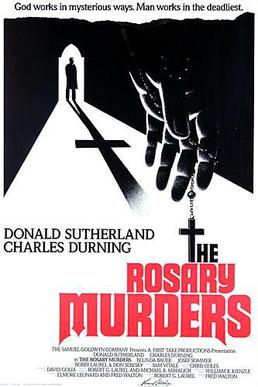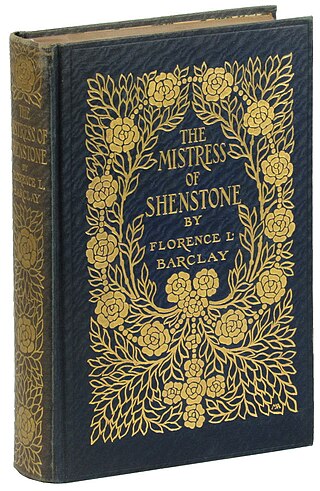
Tess of the d'Urbervilles: A Pure Woman is a novel by Thomas Hardy. It initially appeared in a censored and serialised version, published by the British illustrated newspaper The Graphic in 1891, then in book form in three volumes in 1891, and as a single volume in 1892. Although now considered a major novel of the 19th century, Tess of the d'Urbervilles received mixed reviews when it first appeared, in part because it challenged the sexual morals of late Victorian England.

Middlemarch, A Study of Provincial Life is a novel by English author George Eliot, the pen name of Mary Ann Evans. It appeared in eight installments (volumes) in 1871 and 1872. Set in Middlemarch, a fictional English Midlands town, in 1829 to 1832, it follows distinct, intersecting stories with many characters. Issues include the status of women, the nature of marriage, idealism, self-interest, religion, hypocrisy, political reform, and education. Despite comic elements, Middlemarch uses realism to encompass historical events: the 1832 Reform Act, early railways, and the accession of King William IV. It looks at medicine of the time and reactionary views in a settled community facing unwelcome change. Eliot began writing the two pieces that formed the novel in 1869–1870 and completed it in 1871. Initial reviews were mixed, but it is now seen widely as her best work and one of the great English novels.

Ethel Florence Lindesay Richardson, known by her pen name Henry Handel Richardson, was an Australian author.

Far from the Madding Crowd (1874) is Thomas Hardy's fourth published novel and his first major literary success. It was published on 23 November 1874. It originally appeared anonymously as a monthly serial in Cornhill Magazine, where it gained a wide readership.

Alice Duer Miller was an American writer whose poetry actively influenced political opinion. Her feminist verses influenced political opinion during the American suffrage movement, and her verse novel The White Cliffs influenced political thought during the U.S.'s entry into World War II. She also wrote novels and screenplays.

Elinor Glyn was a British novelist and scriptwriter who specialised in romantic fiction, which was considered scandalous for its time, although her works are relatively tame by modern standards. She popularized the concept of the it-girl, and had tremendous influence on early 20th-century popular culture and, possibly, on the careers of notable Hollywood stars such as Rudolph Valentino, Gloria Swanson and, especially, Clara Bow.

Dracula's Daughter is a 1936 American vampire horror film produced by Universal Pictures as a sequel to the 1931 film Dracula. Directed by Lambert Hillyer from a screenplay by Garrett Fort, the film stars Otto Kruger, Gloria Holden in the title role, and Marguerite Churchill, and features, as the only cast member to return from the original, Edward Van Sloan – although his character's name was altered from "Van Helsing" to "Von Helsing".

Florence Louisa Barclay was an English romance novelist and short story writer.

The Rosary Murders is a 1987 American mystery crime film directed by Fred Walton, and starring Donald Sutherland, Charles Durning, Belinda Bauer, and Josef Sommer. The plot follows a series of gruesome murders occurring within a Detroit Roman Catholic parish. It is based upon the 1979 novel of the same name by William X. Kienzle. Kienzle received screenplay credit, as did Elmore Leonard.
Danielle Steel's Star is a 1993 American made-for-television film starring Jennie Garth, Craig Bierko, Terry Farrell, Penny Fuller and Mitchell Ryan. This film is based on the 1989 novel Star by author Danielle Steel and is set in the 1970s. It was directed by Michael Miller and written by Danielle Steel and Claire Labine. Crystal Wyatt's singing voice during the song Timeless Love was performed by Megon McDonough.

Linda Arvidson was an American stage and film actress. She became one of America's early motion picture stars while working at Biograph Studios in New York, where none of the company's actors, until 1913, were credited on screen. Along with Florence Lawrence, Marion Leonard, and other female performers there, she was often referred to by theatergoers and in trade publications as simply one of the "Biograph girls". Arvidson began working in the new, rapidly expanding film industry after meeting her future husband D. W. Griffith, who impressed her as an innovative screen director. Their marriage was kept secret for reasons of professional discretion.
Mary Raymond Andrews was an American writer. She is best known for a widely read short story about US President Abraham Lincoln, "The Perfect Tribute", which was adapted for film twice and sold 600,000 copies when published as a standalone volume.

Resurrection is a 1909 American silent short film made by the Biograph Company. It is based on Leo Tolstoy's 1899 novel Resurrection. Adapted for the screen by Frank E. Woods, it was directed by D. W. Griffith and stars several pioneering legends of American cinema such as Arthur V. Johnson, Florence Lawrence, Marion Leonard, Owen Moore, Mack Sennett, and Linda Arvidson, who was Griffith's first wife.

Before I Hang is a 1940 American horror film released by Columbia Pictures, starring Boris Karloff. The film was directed by Nick Grinde and was one of several films Karloff starred in under contract with Columbia.

Caribbean Gold is a 1952 American historical pirate adventure film directed by Edward Ludwig and starring John Payne, Arlene Dahl and Cedric Hardwicke. It was produced by Pine-Thomas Productions for distribution by Paramount Pictures and was based on the novel Carib Gold by Ellery Clark. The film's sets were designed by the art director Hal Pereira. It is also known by the alternative title Caribbean.
Marguerite Florence Laura Jarvis, also known under the pseudonym of Oliver Sandys was a British writer, screenwriter, and actress. She used several other names and aliases, such as Countess Barcynska, Hélène Barcynska, Marguerite Florence Barclay, Mrs. Armiger Barczinsky, Caradoc Evans Marguerite, Marguerite Evans, Armiger Barclay, and Marguerite Barclay.
Tony Lekain, real name Tony Théodore Weill, was a French film director, who was active during the 1920s and 1930s.

The Rosary is a 1934 French drama film directed by Tony Lekain and Gaston Ravel and starring Louisa de Mornand, André Luguet and Hélène Robert. It is based on the 1909 novel The Rosary by British writer Florence L. Barclay and its stage adaptation by Alexandre Bisson.

The Mistress of Shenstone is a 1910 romance novel by the British writer Florence L. Barclay. It was published in London and New York City by Putnam's. Barclay had enjoyed great success with her previous novel The Rosary which topped the annual Publishers Weekly bestsellers list.















